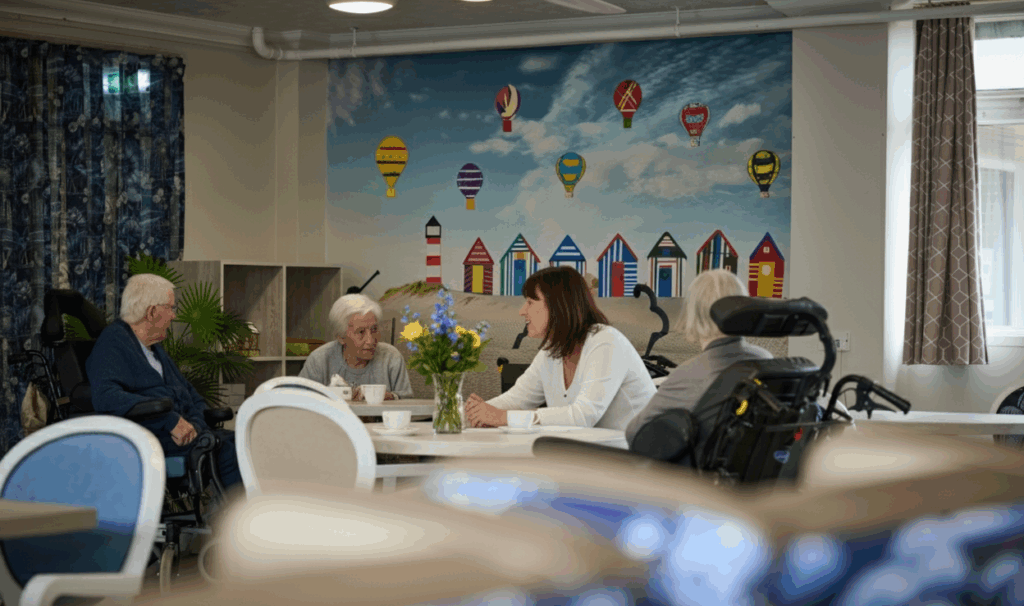Caring for an elderly parent comes with a mix of love, responsibility, and sometimes, difficult decisions. As your parent ages, you may notice signs that they’re struggling to live independently, and this can prompt questions about what’s best for their health, safety, and overall wellbeing.
At Upper Mead Care Home in Henfield, we understand how hard this conversation can be. That’s why we’re here to help families recognise the signs and understand when supported care might be the right next step.
Recognising Cognitive Decline in Elderly Parents
One of the most significant indicators that independent living may no longer be suitable is cognitive decline. While occasional forgetfulness is normal with age, persistent memory loss or confusion can signal more serious conditions like dementia.
Signs to look for:
Missed medications or appointments
- Confusion about dates, time, or location.
- Repetition of questions or stories.
- Poor judgement, like financial mistakes, scams and neglecting hygiene.
If these signs become frequent, it may be time to speak with a healthcare professional.
Declining Physical Health and Mobility
Natural ageing affects mobility, but when physical limitations start impacting safety, independent living can become risky.
Warning signs include:
- Frequent falls or balance issues.
- Difficulty walking or navigating stairs.
- Worsening chronic conditions (e.g. diabetes, arthritis, heart disease).
- Struggles with daily activities like dressing, eating, or bathing.
Injuries from falls or mismanaged health conditions can seriously affect quality of life — and often require round-the-clock support.
Signs the Home Environment is No Longer Safe
Take a close look at your parent’s living space. Has their once tidy home become cluttered or unsafe?
Common red flags include:
- Spoiled or out-of-date food.
- Unpaid bills or unopened post.
- Unsafe appliance use or scorched pans.
- Trip hazards or blocked walkways.
- Lack of cleanliness or hygiene.
These changes may reflect physical or cognitive struggles and are a strong signal that extra help is needed.
Financial Confusion or Vulnerability
Money management can be one of the first skills affected by memory issues or cognitive decline.
Look out for:
- Forgotten bills or missed payments.
- Unexplained purchases or withdrawals.
- Increased susceptibility to scams.
- Allowing others access to cards or accounts.
- General confusion about finances.
If your parent is struggling financially or at risk of exploitation, it may be time to intervene.
When Your Support Isn’t Enough
Family caregiving is a labour of love, but it’s also physically and emotionally demanding. You may have taken on more responsibility than you expected, and that’s okay.
If you’re juggling work, family, and caregiving and feel overwhelmed, it’s important to recognise your own limits. Sharing the care with professionals can give both you and your parent a better quality of life.
Helping Your Parent Transition to a Care Home
Suggesting a move into a care home is a sensitive topic. It’s natural for your parent to fear losing their independence, and for you to feel conflicted about the decision.
Approach the conversation gently, focusing on safety, companionship, and the benefits of daily support. Try involving them in the process, visiting care homes together, or considering a short respite stay to ease the transition.
Why Choose Upper Mead Care Home in Henfield?
At Upper Mead, we offer compassionate, professional care in a safe and welcoming environment. As part of Splendid Healthcare, our Henfield-based home provides tailored support that balances safety, comfort, and independence.
Here’s what makes Upper Mead different:
- 24/7 personalised care from trained staff.
- Specialist dementia, nursing, residential, respite, convalescent and palliative care options.
- Comfortable, en-suite rooms in a purpose-built setting.
- Engaging activities designed to promote wellbeing.
- Nutritious meals prepared fresh each day.
- Strong local community ties in Henfield.
Whether your parent needs full-time residential support or short-term respite care, we’re here to help them thrive, not just live.
Discuss Support for Your Elderly Parent
It’s never an easy decision to make, but recognising the signs and exploring professional care early can make a big difference to your parent’s health and happiness. At Upper Mead, we’re here to support you through every step of the journey. If you’d like to speak to our team or arrange a no-obligation visit, we’d love to welcome you.
